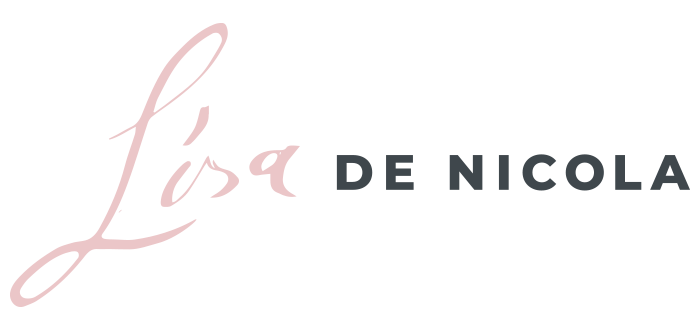We’ve heard a lot about what skills will be in demand in the future of work, and more specifically, post-COVID. At the height of the pandemic, we also saw how HR experienced one of their biggest challenges this year alone.
To say they had their plates full is an understatement. From sudden and quick changes to managing new ways of working and health and safety measures, only scratches the surface of what they’ve had to manage.
This varied from organization to organization depending on the industry and size of the company. It also led to some eye-opening needs that will be vital to look at as we move forward in a post-COVID world and the future of work.
We’ve seen a lot about what skills will be in demand in leaders and what skills top talent should focus on to be relevant in the future of work.
Human Resources will also be in the spotlight as we look to their skills that will be highly sought after and most in demand. To truly be advisors and business guides to the C-suite, it’s time to level up and create new opportunities that will be part of the HR family of functions.
Gone are the days of HR Generalists and hello to more HR specialists or experts in a specific functional area within HR. Whether it be creating new positions or reinventing former HR-related positions.
Think about the heightened needs that have come up due to COVID.
- More wellness programs
- Managing a diversified and hybrid workforce
- Employee experience
- Recruitment
- Retention
The list goes on. Not to say this is all due to COVID, but rather, it’s created a heightened awareness of the growing needs and how quickly things change.
These needs and others call for more specialized and focused positions, which call for new and more refined skills in the world of HR.
According to Gartner’s research, building critical skills and competencies continues to be a top priority for HR leaders in 2021 as organizations focus on growth, improving operational excellence and organizational (re) design and change.
How will they achieve this?
What skills will be vital for HR to hone and develop in the future of work and a post-COVID world?
- Empathy – we talk a lot about leaders developing more empathy to connect to their employees. If HR is going to be their right arm partner in supporting the needs of the business as well as employees, their empathic skills need to be just as strong.
Any role leading people requires a strong level of EI (emotional intelligence). Not all HR people are empathetic and some are prioritizing the wrong skills. It will be imperative that HR dive deep into the emotional and social skills that make up emotional intelligence, such as empathy.
2. Communication Skills – the pandemic certainly challenged organizations and businesses across the board when it comes to their communication strategy. Communicating changes from one day to the next (at times quite literally) isn’t easy. Not to mention trying to maintain sensitivity, compassion and understanding as some difficult messages were communicated.
It also brought to light some big misses that unfortunately shouldn’t have been missed. While COVID presented unique circumstances and perhaps communicating some never before messages, it’s in these times people look for reassurance.
Specifically, when messages aren’t carefully crafted considering the impact on employees and instead, leaving people worrisome, insecure and uncertain, it’s a miss.
So much of what is said in the best of times and the most challenging of times, is also what’s not being said. In the future of work and in a post-COVID world, more clarity and transparency from all levels of leadership including HR will be a must.
3. Decision-making skills – it’s no surprise that decisions were made quickly at the height of the pandemic and in some cases throughout. The sometimes-sudden changes forced HR and leaders to make decisions at the mercy of external circumstances and outside their control.
Decision-making skills are critical regardless of experiencing a global crisis. and it will be a valuable skill to develop as we look towards the future of work. Seeing how critical it is to make sometimes quick and important decisions that not only impact the business but employees as well.
This year also reminded the world how systemic racism continues to be prevalent across the globe as we saw a social movement make waves.
At a corporate level, it reminded organizations to educate themselves on what racism looks like within their business and ensure diversity and inclusion is evident at all levels of the organization.
There’s enough research that shows the gender gap and lack of diversity when it comes to leadership. In fact, a Gartner survey of HR leaders in early 2020 found that 88% felt their organization had not been effective at increasing diverse representation.
While this may not be considered a skill to develop, HR will be called to deepen their knowledge and understanding of diverse representation and how inclusivity impacts the organization.
Their influence on the broader business will be important and a continued focus on DE&I (diversity, equality and inclusion).
The future of work will see many skills that will be highly sought after as we continue to see a diversified workforce. We need both leadership and HR teams to look at the skills that will empower them to be at their best and successfully lead their organization and employees forward.
I’d love to hear from you!
What skills do you think will be most in demand for HR?
Let me know in the comments below!
If you’re interested in diving deep into honing some of the most in-demand skills that will set you apart in today and in the future of work, I’d love to connect with you! The EQ- i 2.0 assessment is a scientifically based, progressive tool that can help identify the emotional and social skills that make up your emotional intelligence. Ask me for more details!
With all my appreciation,
Lisa 💖





